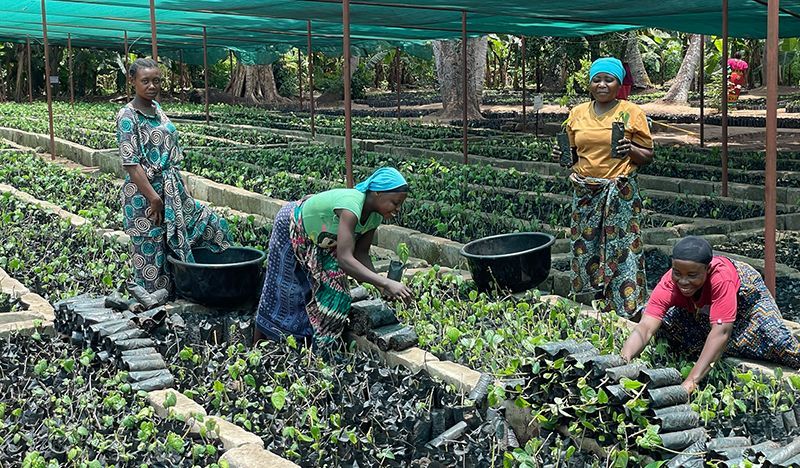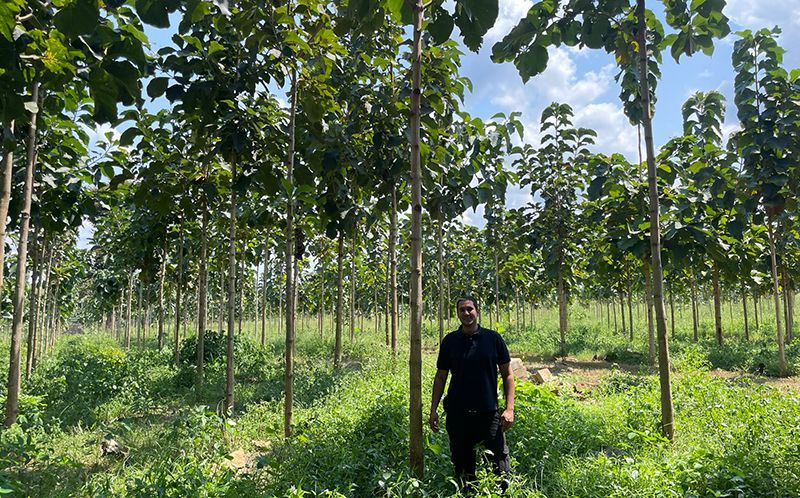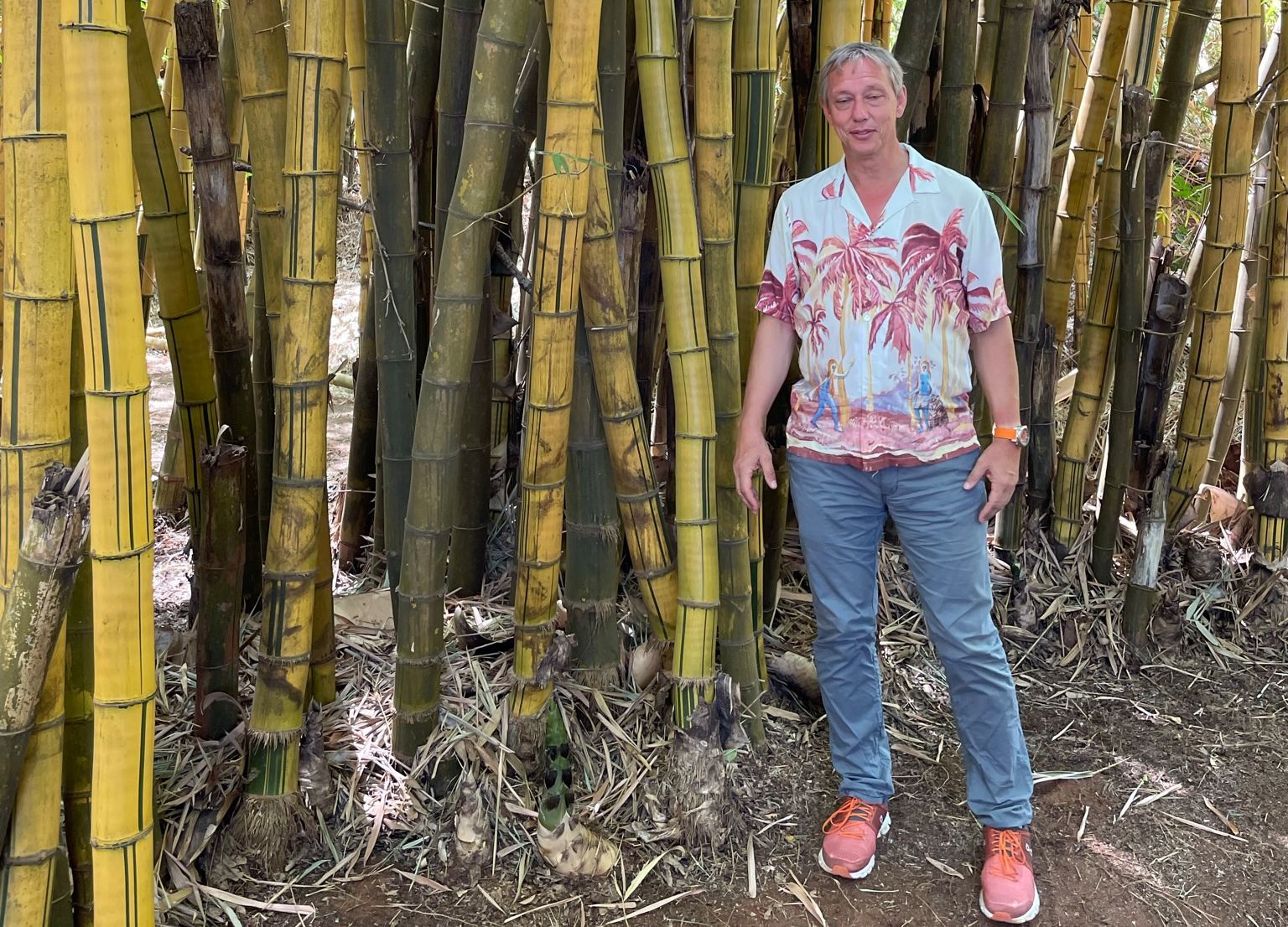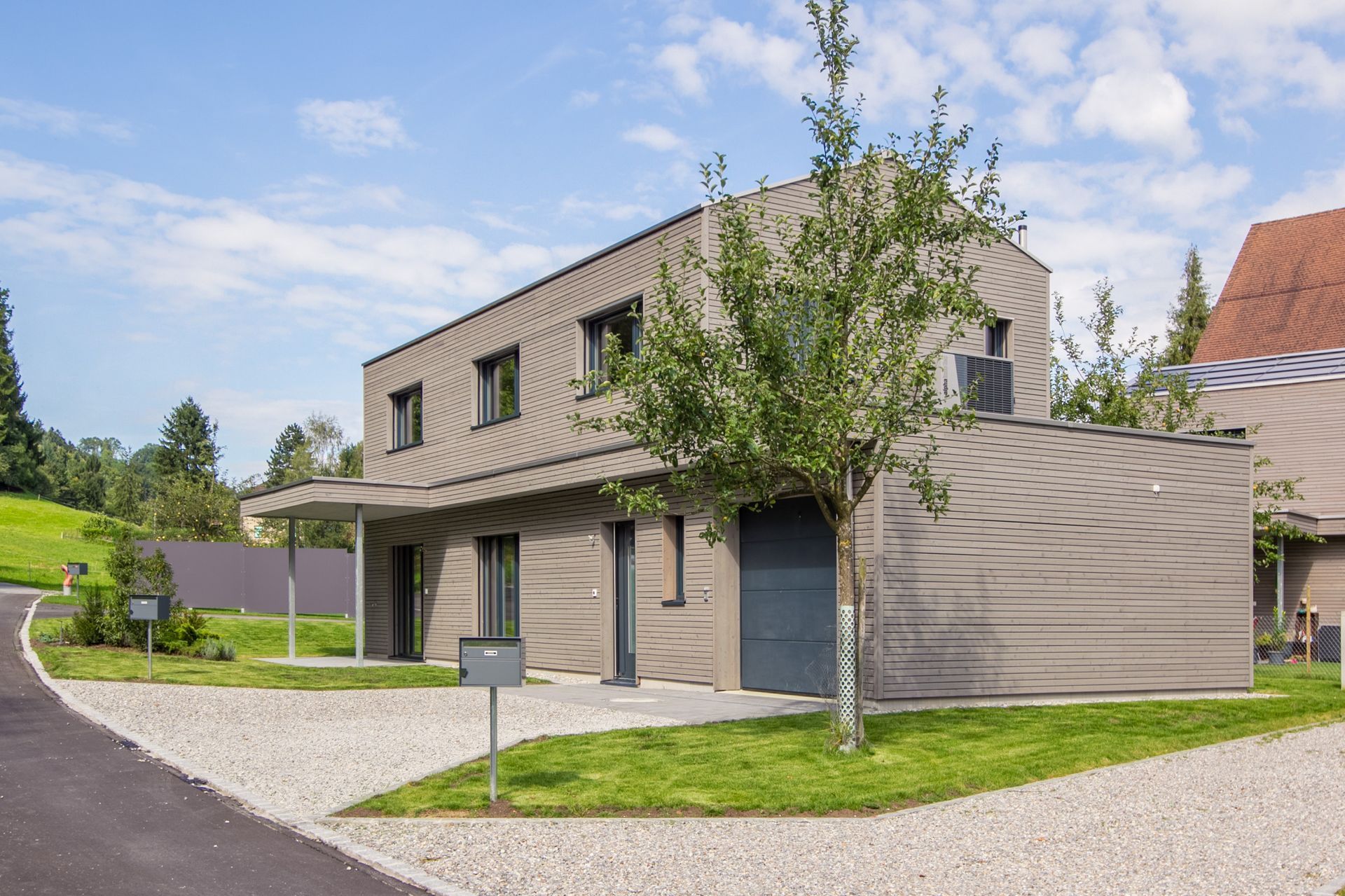01
Agriculture
Food for rural communities and the rest of the world

Ensuring food security is one of the greatest challenges of our time. Especially in sub-Saharan Africa, where the population is expected to more than double in the coming years.
It is a matter of transferring know-how and establishing sustainable and gentle agricultural methods.
In addition, certified agricultural products achieve significantly higher prices on the world market and therefore guarantee sustainable and lucrative income.
02
Forestry
Reforestation for clean air and biodiversity
Reforesting is one of the most important and valuable tasks in nature. However, it is not only appropriate to view these renaturation measures from an ecological perspective.
It is certainly about biodiversity and the creation of habitats for endangered species. But it is also about the production of wood as a renewable building material.
Certified silviculture in particular can use optimized timber production to take pressure off the natural rainforests as a source of wood.

03
Carbon Removal
Remove CO2 from the air and save the climate

Reducing CO2 emissions is not enough to achieve the global climate targets. Rather, it is essential to permanently bind CO2 that has already been emitted.
The most natural way to achieve this is through biomass. Bamboo is one of the fastest-growing plants. If the mature bamboo is used for long-term buildings, a double positive effect is achieved.
In addition to binding CO2, bamboo can replace concrete as a building material and thus counteract the environmental and air pollution caused by concrete production.
04
Green and affordable houses
Disruptive nature-based technologies for zero-emission living at low cost
Bamboocell

05
Impact
Sustainable development, education and health promote and secure global prosperity and peace

Only if we succeed in improving prosperity in less developed countries a lasting global peace can be achieved.
Improving living conditions in the rural regions of sub-Saharan countires can be achieved even with small measures in the areas of education, health and infrastructure.
But here too, it is important to ensure that the projects are sustainable and self-financing in the medium term in order to avoid remaining dependent on development aid and NGOs.

